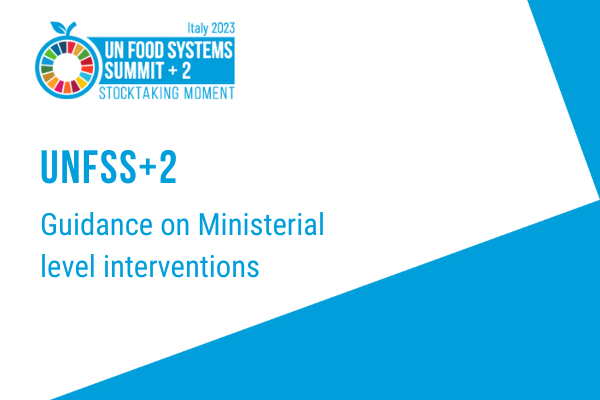SEED FUNDING JOINT PROGRAMMES
Cambodia
Transforming Cambodia’s food systems to become more sustainable, inclusive, and resilient


PROJECT TITLE | Transforming Cambodia’s food systems to become more sustainable, inclusive, and resilient |
| Context | Cambodia’s National Pathway is the outcome of an extensive consultation process, involving more than 2,000 people throughout thirty dialogues, which identifies four priority areas, namely healthy diets for all, empowerment of youth, women and vulnerable groups, resilient livelihoods and food systems, inclusive governance. Acknowledging the risks posed by climate change to hard won development gains and as a co-founder of the Alliance of Champions for Food Systems Transformation, Cambodia is prioritizing the integration of climate change and food systems transformation, building coherence across the agendas. The Council for Agricultural and Rural Development, the government agency coordinating food security and nutrition initiatives in Cambodia, is leading collaborative efforts to translate national aspirations into concrete action. |
| PUNOs | FAO, WFP, UNICEF |
| Contribution to SDGs | SDG 2 Zero Hunger |
| Contribution to other SDG transitions | Climate, biodiversity, pollution |
| Duration | August 2024 – July 2025 |
| Expected financial leverage | $3 million |
| Alignment with SG Call to Action | Policy integration; Food systems governance; Inclusive and participatory design; Private sector engagement |
| Outcomes | The Joint Programme fosters an enabling environment for food systems transformation by enhancing national capacities and policy frameworks, identifying opportunities to unlock financial streams, and strengthening advocacy efforts for food systems transformation. The JP provides crucial support to the alignment of the climate and food agendas, accelerating progress towards resilient, sustainable and inclusive food systems. |
| Partners | Council for Agricultural and Rural Development (CARD) will be the main government counterpart and will coordinate the government activities in conjunction with other key Ministries, including:
|
| Outputs |
|
Guidance on Ministerial level interventions from the floor in the UNFSS+2 Plenary Sessions

Ministers that are interested to deliver interventions from the floor during the UNFSS+2 Stocktaking Moment Plenary Sessions are kindly invited to register for a specific Plenary. Interventions will be prioritized for Ministers that are not involved in any panels and do not have speaking slots in any other session (Leadership Dialogues, Special Events, High-Level Session, and panels of Plenary Sessions). Please note that due to the large number of Ministerial level Delegates one registration per country will be considered in a first-come first-served basis.
A total of 90 minutes is allocated for interventions from the floor in each of the three Plenary of 25 and 26 July. The time allocation per each intervention will be set to 2½ minutes with a buffer time of 30 seconds to conclude the intervention. A countdown clock will be visible in the room and at the end of the 2½ minutes, it will alert the speaker on the remaining time to close the intervention. At the mark of the third minute the Moderator will ask the speaker to conclude and will pass the floor to the next pre-registered intervention.
Pre-registration for interventions is open until Thursday 20 July 2023 at 18:00 Rome time using the following link: https://rebrand.ly/UNFSS2STM
For more technical information on the Plenary Sessions, please contact the following colleagues:
Plenary Session 1: Food Systems Transformation in Practice - Successes, Challenges and the Way Forward
Halima Hodzic ([email protected]) and Paul Kiernan ([email protected])
Plenary Session 2: Reversing the food and hunger crisis: building resilient food systems
Susana Rico ([email protected]) and Sarah Piccini ([email protected])
Plenary Session 3: Mobilizing means of implementation for food systems transformation
Manuela Rizza ([email protected]) and Valentina Polacchi ([email protected]).
